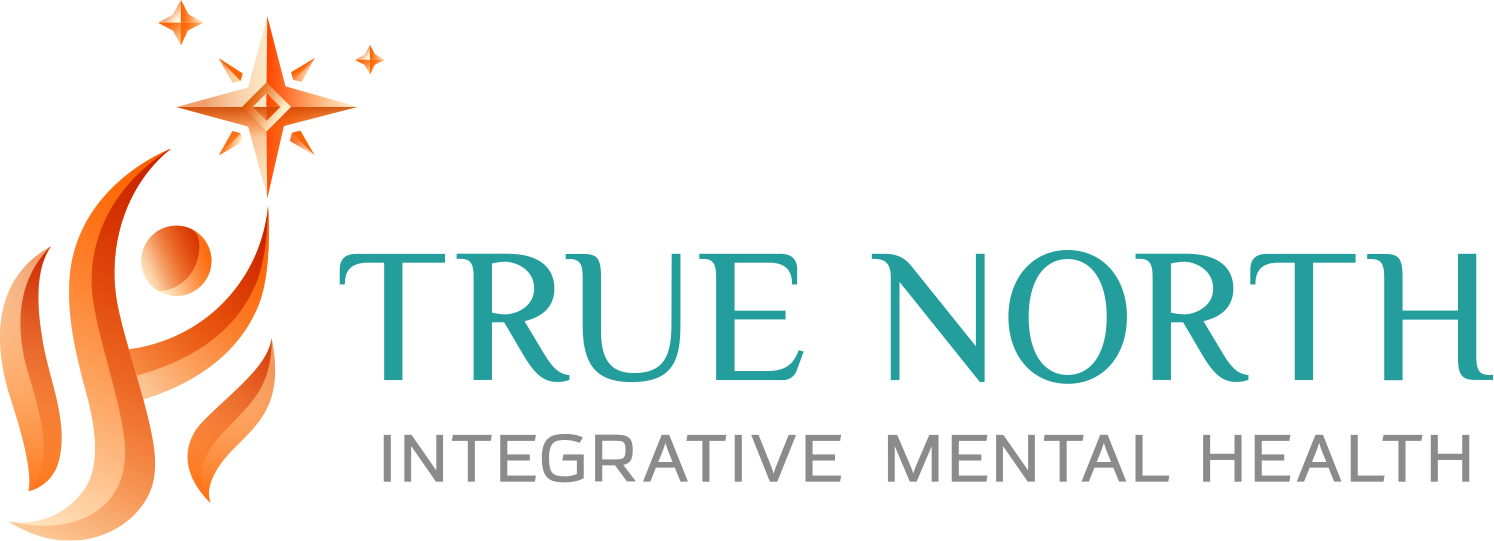TMS Therapy for Depression: National Suicide Prevention Month Guide
Dr. Jamie Rogers • September 5, 2022
September is Suicide Prevention Awareness Month, a time to increase awareness of this challenging and often hidden topic. It is meant to shift public perception, spread hope, and share vital information with people affected by suicide to ensure they can seek help and discuss suicide prevention without the shame often associated with mental health stigma.
Preventing suicide is possible if you have the right tools. And if you're suffering from depression, TMS Therapy and other treatment modalities can give you or a loved one their life back by treating underlying depression. Check out this blog to learn more about National Suicide Prevention Month and how TMS Therapy can help prevent death by suicide.
National Suicide Prevention Month: Fast Facts
- 79% of all people who die by suicide are male.
- Suicide is the 12th leading cause of death overall in the U.S.
- Suicide is the 2nd leading cause of death among people aged 10–14.
- Suicide is the 3rd leading cause of death among people aged 15-24 in the U.S.
- 46% of people who die by suicide had a diagnosed mental health condition, but research shows that 90% may have experienced symptoms of a mental health condition.
- Annual prevalence of severe suicidal ideation in national demographic groups: 4.9% of all adults, 11.3% of young adults aged 18-25, 18.8% of high school students, and 45% of LGBTQ youth.
Why Do We Need A Special Month For Suicide Prevention?
One in 10 Americans will experience a mental health condition in their lifetime. Ninety percent of people who commit suicide experience adverse mental health symptoms, and approximately 90% do not receive the treatment they need.
While addressing suicide prevention any time of year remains critical, National Suicide Prevention Awareness Month provides a dedicated time to unite and focus our dedicated efforts, passion, and strength to address this challenging topic. Everyone can benefit from open discussions on mental health concerns and suicide. It can take one conversation to change a life forever.
Benefits of Raising Awareness
Raising awareness about suicide prevention, understanding the facts, and having honest conversations with people about mental illness and suicide might help save a life. The stigma of suicide makes it more difficult for people considering suicide and those around them to seek help. It is a topic most people shy away from in conversation, but it's been found that raising awareness leads to better outcomes in suicide prevention efforts.
By raising awareness of suicide prevention, we can demystify depression and let people know help is available should they ever need it. It can also encourage people to speak up when they see or hear somebody in distress.
Combating Mental Health Stigma
Many people think talking about suicide will only encourage it, but the opposite is true. Talking about suicide allows the individual to share their story, and the discussion may lead to the person getting the help they need.
Sometimes suicide is seen as a way to take control of troubling emotions or thoughts. Suicidal ideation usually goes away when a person gets help managing those thoughts, so they are no longer painful; suicidality is not permanent. Those experiencing suicidal ideation can get the support they deserve to continue living a long, prosperous life.
Breaking through mental health stigma can help those suffering feel safe to speak up and seek help.
Understanding the Warning Signs of Suicidality
People experiencing suicidality usually exhibit warning signs through their words or actions. It is essential to know some of the warning signs to look for, such as:
- Dramatic mood swings
- Social withdrawal
- Aggressive, impulsive, or reckless behavior
- Increased drug or alcohol use
Suicidal behaviors such as the following warrant contacting a health care provider or emergency services, such as 911 or 988:
- Taking care of loose ends, such as organizing personal papers or paying off debts
- Donating or giving away their possessions
- Buying a weapon or collecting pills
- Saying goodbye to friends and family
How To Support Someone Who Has Suicidal Ideation
You can encourage someone who might be having suicidal thoughts to speak about how they're feeling. If you are unsure if someone has suicidal thoughts, you can ask:
- "Are you thinking about suicide?",
- "Are thinking of ending your life?"
- "Are you thinking about killing yourself?"
Other ideas to consider when talking to someone struggling with suicidal ideation:
- Tell them how much you care and remind them they are not alone.
- Remember that you do not know what they're feeling. You could say, "I can't imagine how painful this is, but I want to try and understand."
- Try not to criticize or blame them.
- Summarize what they say by repeating or reiterating it to them to show you're paying attention and have heard them correctly.
- Listen to their reasons for living and dying. Explore their reasons for living in greater detail.
- Talk about the people they care about, who care about them, and who they may hurt if they leave them behind.
- Ask them if they have a suicide plan and, if so, what it is.
- Create a crisis plan with them to learn how to help in the future if they feel this way again.
- Encourage them to find the care they are comfortable with and offer to be there to help them through it.
- Follow through on any commitments you make.
- Ensure they are with someone if they are in immediate danger.
You don't have to find an answer or fully understand why they feel the way they do. The most important thing is to listen to what they say, so at the very least, you show them you care.
Crisis Resources
If someone actively wants to end their life and is in immediate danger, you can help keep them safe by:
- Staying with them and making sure they're not left alone.
- Talk to them.
- Remove any dangerous items they can use to hurt themselves.
- Seeking professional help.
For emergency help, reference these crisis resources:
- Call or text 988 immediately.
- Chat online at 988lifeline.org.
- Text NAMI to 741-741 to connect to the Crisis Text Line.
- Take them to the nearest emergency room.

The Connection Between Depression & Suicide
According to the U.S. Department of Health & Human Services (HHS), most people who suffer from depression do not die by suicide, but depression does carry a heightened risk of suicide compared to those without the illness. Part of this risk correlates with the severity of the depression.
HHS shares new data on depression:
- Approximately 2% of people treated for depression in an outpatient setting will die by suicide.
- The suicide rate is twice as high among those ever treated for depression in an inpatient hospital setting.
- The chance of death by suicide increases three-fold following inpatient care than outpatient care for depression.
How TMS Therapy for Depression Can Help
Transcranial Magnetic Stimulation or TMS therapy is a non-invasive treatment that uses electromagnetic currents to stimulate parts of the brain. It helps regulate mood and promote well-being by stimulating regions in the frontal lobe that affect emotion, memory, appetite, and sleep. It is currently FDA-approved for major depression, obsessive-compulsive disorder, certain types of chronic pain, and more.
Research shows that TMS therapy can also help reduce suicidal thoughts. In one study, 77% of patients experienced reduced suicidality, and 71% had no suicidal ideation after undergoing a course of TMS therapy sessions.
Seeking Help for Depression in Greenville, North Carolina
TMS therapy is one treatment option for depression that can help prevent death by suicide. For more information about how TMS therapy can help you or a loved one, reach out to True North IMH, a leading force in TMS therapy, supporting those who may need it most.
Call today to seek the support you deserve: 252-232-4290.
Reference Links:
https://www.nami.org/Get-Involved/Awareness-Events/Suicide-Prevention-Awareness-Month-(SPAM)
https://www.nami.org/NAMI/media/NAMI-Media/Infographics/NAMI_Suicide_2022_FINAL.pdf
https://988lifeline.org/promote-national-suicide-prevention-month/
https://www.southmiamirecovery.com/awareness-suicide-prevention/
https://www.rethink.org/advice-and-information/carers-hub/suicidal-thoughts-how-to-support-someone/

Our Helpful Links
Schedule a Consultation
Get help with depression today! It's important to know that you are not alone.
Ready to get started?
At TrueNorth IMH in Greenville, NC, our neurocare and psychiatric services are dedicated to enhancing mental well-being within the local community and across Pitt County. We excel in delivering tailor-made treatment plans designed to assist you in achieving a more fulfilling life.
Our dedicated team is unwavering in their commitment to assist you on your individual path toward improved mental health, whether you are contending with anxiety, depression, PTSD, ADD, or any other mental health challenge.
Located in the heart of Greenville North Carolina? We're here to provide support!


NAVIGATION
TRUE NORTH INTEGRATIVE MENTAL HEALTH & S.M.E.G. FAMILY MENTAL HEALTH